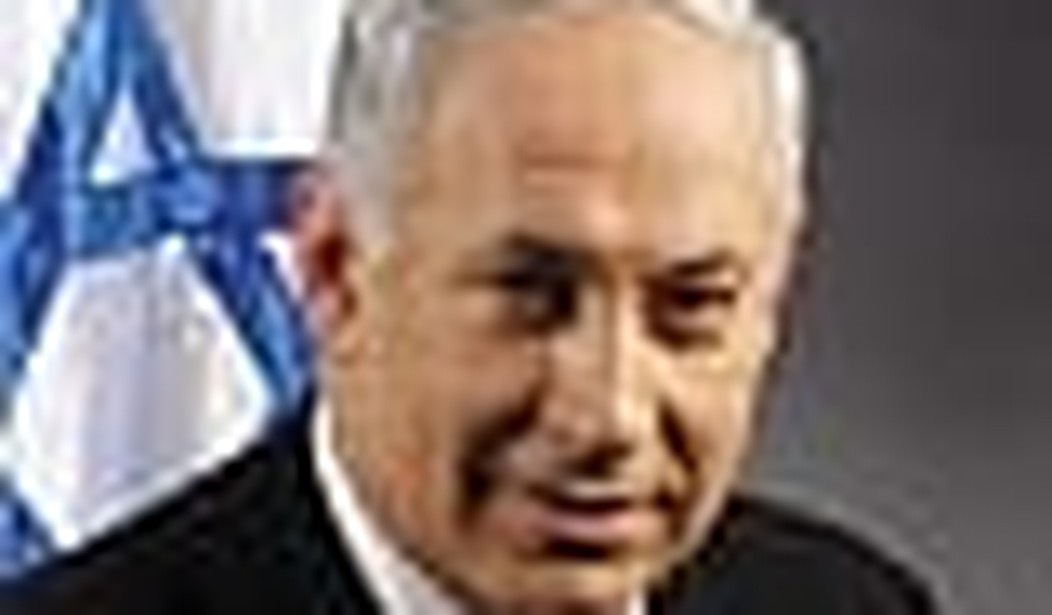Israelis continue to yearn for a peace that remains elusive. So suggested the three-and-a-half days of vigorous give-and-take at the 10th annual Herzliya Conference on Israel’s national security.
Organized by the Institute for Policy and Strategy at the Interdisciplinary Center at Herzliya, the international conference featured not only a culminating address last night by the prime minister of Israel, but also an historic address the evening before by Salam Fayyad, the first prime minister of the Palestinian Authority to come to Israel to give a speech since the death of Yasser Arafat in 2004. Taken together, the words of the two prime ministers offered cause for hope even as they avoided or obscured the fundamental obstacles to peace.
Israeli Prime Minister Binyamin Netanyahu surprised. Although he emphasized “engagement,” instead of focusing on the obvious issues — the Palestinians, Hezbollah, Syria, and Iran — he argued for “engagement with tradition, Zionism, our past and our future.” Such engagement, he maintained, reflects the recognition that Israel’s military strength is inseparable from its economic strength, and that preservation of both depends on education broadly conceived. According to Netanyahu, Israel must dedicate itself to schooling its children from an early age not only in math and science, but also and especially in the history, culture, and values of the Jewish people, which are rooted in the Bible and love of the land of Israel.
Notwithstanding these grand themes, engagement of a more politically conventional sort was on Netanyahu’s mind as well. At the beginning of his speech, he revealed that he has reason “to hope that in the coming weeks we will renew the peace process with the Palestinians without preconditions.” This willingness to pursue political negotiations is a departure for Netanyahu. In his campaign last January, he had argued that Israel should concentrate on assisting West Bank Palestinians in developing their economy, but avoided mentioning, or otherwise opening the door to, the establishment of an independent Palestinian state.
In his speech the previous evening, Palestinian Authority Prime Minister Fayyad — who sat beside and shook hands with Israeli Minister of Defense Ehud Barak, whom he followed on stage — insisted on the Palestinians’ right to statehood. Indeed, an independent Palestinian state, he stressed, is the indispensable condition for lasting peace. Palestinians under his leadership, he said, have every intention of continuing to enhance their ability to govern themselves by developing civil society, strengthening the economy, and building political institutions that will form the basis of a Palestinian state. At the same time, he declared that Israel must do its part to make Palestinian independence a reality. To that end, Fayyad called on Israel to cease military operations in the West Bank, recognize East Jerusalem as an integral part of a Palestinian state, and lift what he called “the siege on Gaza.”
The day after Fayyad’s speech, Maj.-Gen. (res.) Amos Gilad, director of policy and political-military affairs and the Defense Ministry’s former coordinator for the administered territories, expressed to me his admiration for the courage Fayyad showed in traveling to the center of Israel to discuss Palestinian aspirations. In his 14th floor office in the Ministry of Defense in Tel Aviv, Gilad also praised Fayyad for presiding over an unprecedented improvement in the Palestinian security forces. Coupled with Israeli security forces achievements, it’s now possible, Gilad noted, for Palestinians to travel from Hebron in the south of the West Bank to Nablus and Jenin in the north without encountering a single Israeli roadblock.
But in the end, said Gilad, Fayyad’s speech evaded the fundamental obstacle: “As long as Hamastan exists, there can be no peace.” And for the moment, the Palestinian Authority has no answer to Hamastan, or the Hamas-ruled Gaza Strip.
To be sure, things have gone badly for Hamas since they defeated Fatah in June 2007 and seized control of Gaza. The crossings to Israel mainly serve to allow humanitarian supplies in. Gaza’s economy is in tatters. Israel inflicted substantial losses on Hamas fighters last year in Operation Cast Lead. And Hamas has failed to obtain international recognition.
Still, argues Gilad, the Palestinian Authority is not remotely capable of reestablishing government in Gaza. Yet the Palestinian Authority, he observed, will never sign a comprehensive agreement that does not include Gaza. The problem for political negotiations is that nobody has any reasonable ideas about how to bring Gaza under Palestinian Authority control anytime soon without in the process exposing Israel to Hamas rockets that the Israeli defense establishment now believes can reach Tel Aviv. And that is entirely unacceptable to Israel.
Nor is that the only major problem. Gilad pointed out that from his office window we could in the distance see the hills of the West Bank. Even a few rockets or mortars launched from there by Hamas terrorists on Israel’s commercial and population center in Tel Aviv, he said, could shut down Ben Gurion International Airport and paralyze the nation. To prevent such attacks, the Israeli defense establishment believes that, even with the impressive progress that Fayyad has made in standing up Palestinian security forces, Israel will need to maintain a significant military presence in the West Bank for many years to come. Under these circumstances, however, no comprehensive political agreement is conceivable because an Israeli military presence in the West Bank is entirely unacceptable to the Palestinians.
Gilad’s analysis is sobering but not disheartening. Notwithstanding the elusiveness of peace, there is much to be done. Israelis and Palestinians needn’t choose between top-down political negotiations and bottom-up development programs. Both should be pursued — but with eyes wide open. To reduce the elusiveness of peace it is necessary to shed the illusions of peace.









Join the conversation as a VIP Member